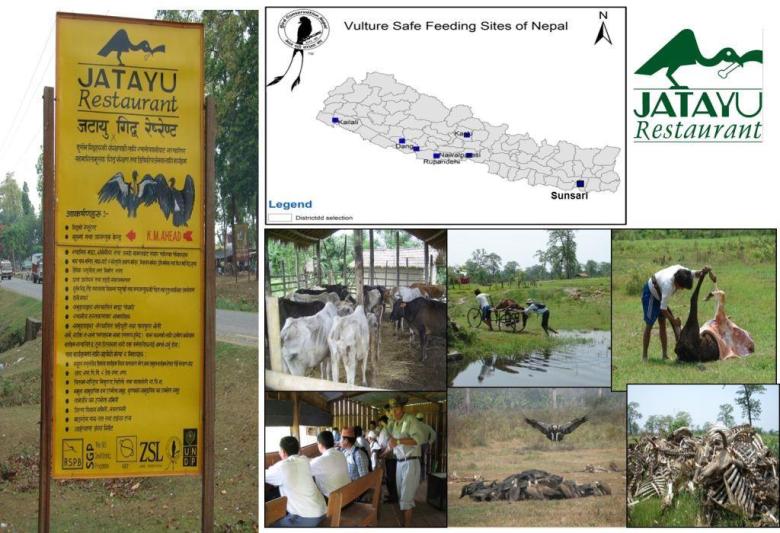
The Vulture's return; Community managed vulture safe zones in Nepal
Gyps vultures nearly went extinct in South Asia in the late 1990s through widespread poisoning by diclofenac. The loss of vultures has resulted in the loss of the ecosystem service they provided – the efficient and safe disposal of carcasses. Vultures out-compete other scavengers; however, their numbers are now so low that they have been replaced by crucially less efficient and less safe scavengers such as dogs, rats etc. This has greatly increased the risk of disease, particularly rabies, and also increased the chances of contamination of water. To conserve these vultures, BCN established Vulture-Safe feeding Sites (VSFS) at Chitwan National park Nepal buffer zone . These are community-run initiatives looking after old and unwanted cattle until their natural death without the use of vulture-toxic NSAIDs to provide to the critically endangered vultures and the people benefit from direct and indirect income generation (sale of milk, hides, bones and manure or to seed micro-enterprises).

